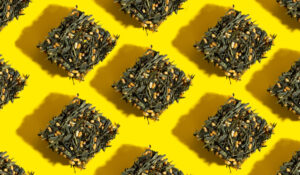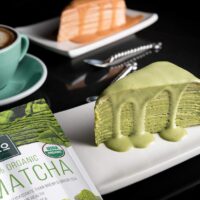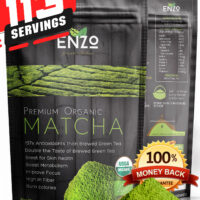Can Green Tea Help Fight Off Viral and Bacterial Infections?

Green tea has long been considered a remedy for warding off all sorts of diseases. It has been associated with weight loss, helping to prevent cancer, improving memory, and sometimes even the ability to help the body fight off common viruses and bacterial infections. However, there are little to no studies to back up these claims other than loose anecdotal evidence. Additionally, there are claims that other teas, particularly white tea, are useful in preventing infections.
Indeed, green tea has been shown to lower heart disease, particularly cancer %6%, to help prevent other cancer types growth %7%, and to remain effective at lowering cholesterol. None of these studies have shown any significant association with green tea reducing viral or bacterial infections, even the growth of certain strains
Could matcha catechins reduce the Covid-19 risks?

Recent research has shown that Matcha tea contains a lot of catechins that could potentially reduce the risk of contracting the H1N1 virus. A particular catechin called epigallocatechin gallate, EGCG, is a powerful antioxidant that has been proven to reduce inflammation and fight off viruses.
In a study, Matcha tea had the lowest concentration of the virus of all the teas studied. Researchers found that Matcha was effective because it has been found to contain high levels of EGCG.
Matcha Green Tea helps to manage or prevent several chronic diseases including type 2 diabetes, cardiovascular disease, high blood pressure, LDL cholesterol, inflammation, etc. It is always better to choose the tea will high content of catechins.
A matcha compound shows anti-SARS-CoV-2 properties in vitro.

A study was recently completed and looked at a matcha compound and its properties. The study was done in the lab and at the end of it, it saw that the compound had an anti-SARS-CoV-2 property.
It turns out that the matcha compound showed an anti-viral property which was tested on a virus called SARS-CoV-2. There were a variety of experiments done with the compound and the one that it showed the most promise was in examining its effect on the immune system. Scientists observed it and saw that when the compound was given to immune cells
Antiviral Effects of Green Tea EGCG and Its Potential Application against COVID-19

In this article, the authors provide a short overview of the antimicrobial activity of tea polyphenols, which consist of a class of plant-derived phenolic chemicals found in a variety of beverages, including green tea. The authors then explore the potential of a green tea extract, epigallocatechin-3-gallate (EGCG), against COVID-19.
The effects of green tea on the immune system have been studied for many years. The most important active ingredient in green tea is epigallocatechin-3-gallate. It has a wide range of biological activities, including antiviral activity. In this study we investigated whether or not there was any relationship between the anti-virus effect of green tea and its main component EGCG.
In order to investigate the correlation between these two factors, we used an influenza virus as a model virus. We also examined how much EGCG could inhibit viral replication by using MDCK cells infected with H1N1 virus. Finally, we compared the results obtained from our experiments with those reported previously.
We found that EGCG inhibited the growth of viruses at concentrations ranging from 0.01 µM to 1 mM.
Green tea is a popular drink that has been consumed for its beneficial effects on human health for thousands of years. In particular, green tea is known to have excellent antioxidant properties. Nowadays, the antioxidant properties of green tea have been studied extensively and been shown to have potential benefits in reducing the risk of cancer. In this article, the authors had a
Superfoods for COVID-19 Prevention

Matcha is a green tea powder made from the leaves of Camellia sinensis, which has been used as an herbal medicine in China since ancient times. It contains high levels of antioxidants called catechins that help to protect against free radicals and inflammation. The antioxidant properties of matcha have also shown promise in treating diseases such as cancer, diabetes, heart disease, Alzheimer’s disease, Parkinson’s disease, and even aging itself!
The health benefits of drinking matcha include:
• Improving brain function by increasing blood flow to your brain
• Boosting metabolism
• Reducing stress
• Increasing energy
• Promoting weight loss
• Lowers cholesterol
• Protecting cells from damage caused by oxidative stress
• Helping with digestion
• Strengthening bones
• Relieving
• anxiety & depression
• Enhancing focus
• Supporting healthy skin







